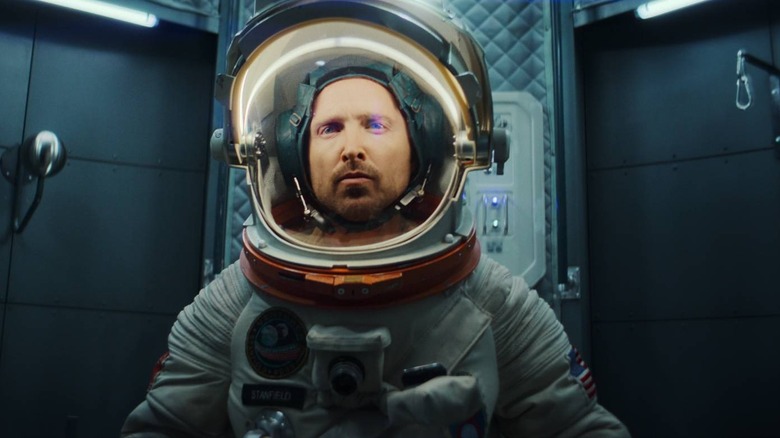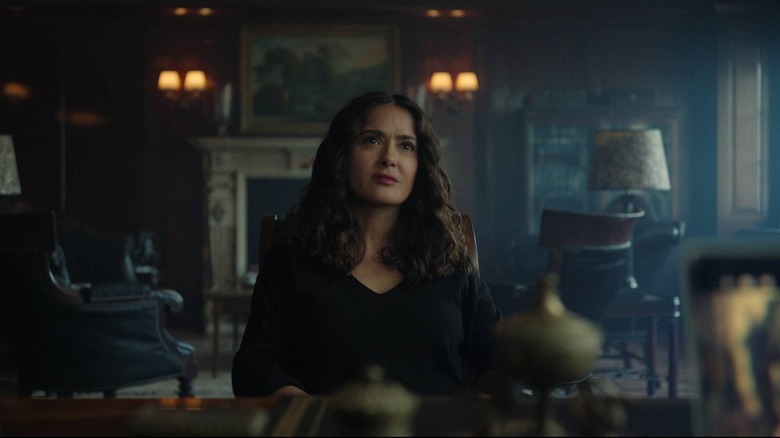Black Mirror: Relax, It's Okay Not To Watch The Episodes In Order
"Black Mirror" pointedly lifts a mirror to modern society to show how alienated and distressed humanity can become when disconnected from one another. It achieves this through its anthology format, where each episode tells a unique story that isn't connected to anything else in the series. It's like watching a bunch of sci-fi short films, which means there's no correct order to watch the show.
This gives viewers the ultimate freedom to watch "Black Mirror" however they want. Some episodes are downright anxiety-inducing, like the dystopian world of "Fifteen Million Merits" or the social media commentary of "Nosedive," which takes a very different approach to its plot than "Community." These might be fine to watch if you're mentally capable of handling the stress, but if you're looking to watch something more lowkey with your partner, there's always "San Junipero."
Watching in order means you might find something you wouldn't have previously considered. It opens up entirely new storytelling possibilities, but if you're someone who likes to know what they're getting into before pressing play, it's perfectly fine to jump around or skip certain episodes completely.
There's a Black Mirror episode for everybody
The standalone nature of each "Black Mirror" episode allows new viewers to jump into a new season without worrying about catching up with what came before. They can simply watch the new episodes, and if they like what they see, they can witness the journey of how "Black Mirror" ended up where it is today. The only thing watching "Black Mirror" out of order might do is that viewers may not necessarily catch all of the Easter eggs. These references don't really impact the plot; they're usually there as a fun background piece, but it can be fun to go back and see what one missed the first time around.
This is especially the case for Season 4's "Black Museum." The story has nothing to do with other episodes, but since the characters walk around a macabre museum, there are plenty of recognizable props for anyone who's seen the first three seasons. Of course, it's a moot point for anyone not interested in random references.
Still, people will be drawn to specific episodes for different reasons. Fans of Miley Cyrus will want to see her meta take on her own career with "Rachel, Jack and Ashley Too," while people who want to see what Daniel Kaluuya was up to prior to "Get Out" will definitely want to check out "Fifteen Million Merits." It may even be prudent to go out of order, as many people consider the very first episode, "National Anthem," to be one of the weakest of the series. Unlike some characters in "Black Mirror," you have the power to do what you want.

